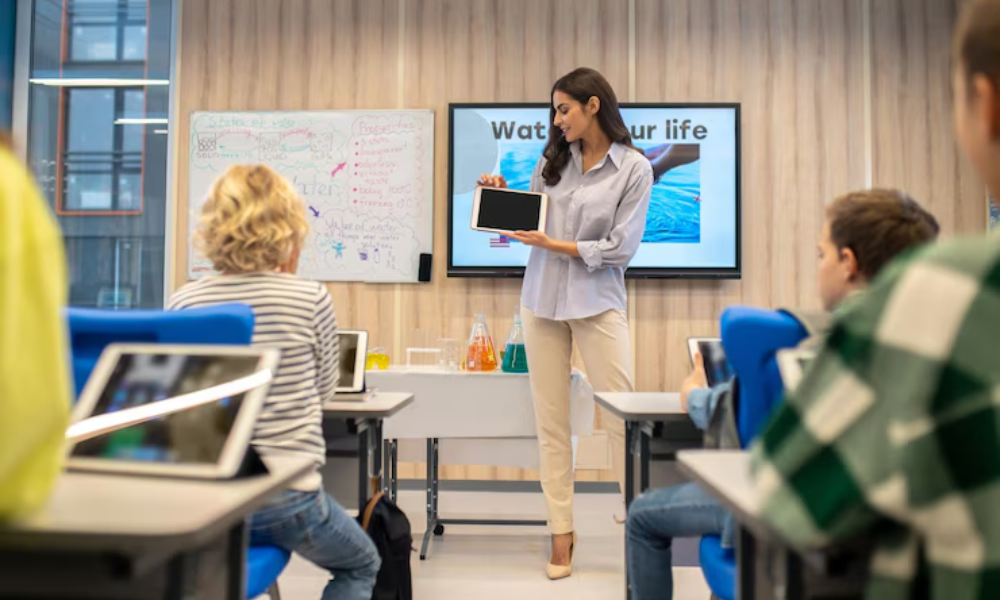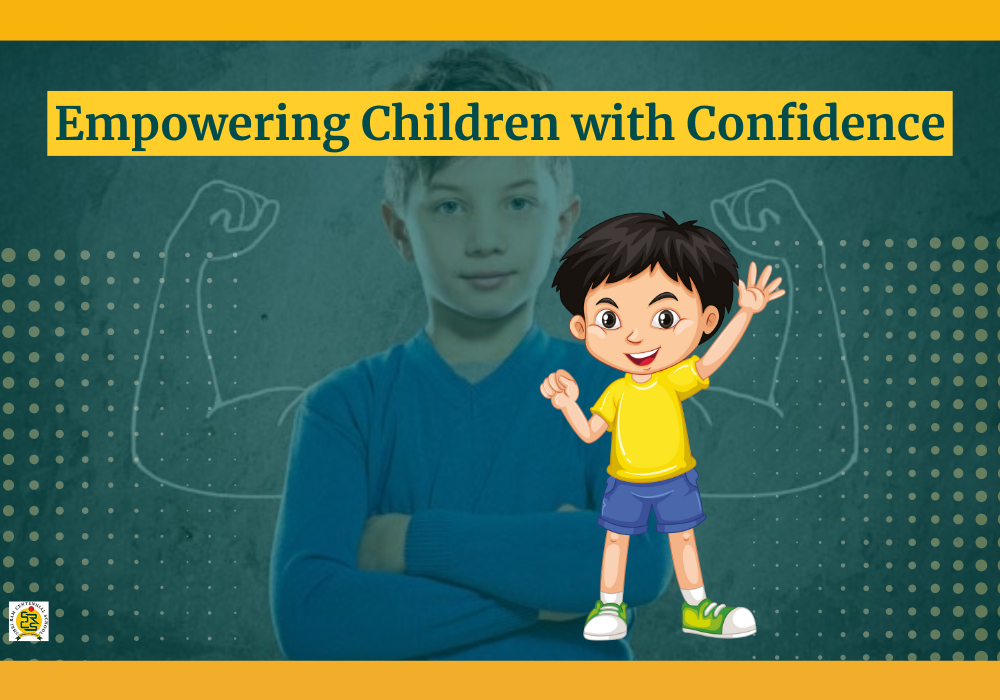Confidence is a vital ingredient for success in any field, and this holds especially true for children. Empowering children with confidence not only enables them to take risks and embrace new challenges but also fosters a lifelong love of learning.
When children believe in their abilities, they are more inclined to learn from their mistakes, develop resilience, and cultivate a growth mindset that propels them toward achieving their full potential.
For those in co-ed boarding schools in India, this confidence can be nurtured through a supportive environment that encourages exploration and growth.
As parents and educators, it is essential to instill the skills and strategies necessary to help children become confident learners, both in traditional settings and in the unique context of co-ed boarding schools in India.
The Importance of Confidence in Children

Confidence plays a pivotal role in a child’s overall development, impacting not just their academic achievements but also their social and emotional well-being. When children are empowered with confidence, they are more likely to:
Take Risks and Try New Things: Confident children are not afraid to step out of their comfort zones. They are more willing to take on new challenges, whether it’s participating in a classroom discussion, trying out for a sports team, or exploring a new hobby. This willingness to try new things is a cornerstone of personal growth and development.
Develop a Growth Mindset and Learn from Failures: A growth mindset is the belief that abilities and intelligence can be developed through dedication and hard work. Confident children are more likely to adopt this mindset, viewing failures and setbacks as opportunities to learn and improve rather than as insurmountable obstacles.
Build Strong Relationships with Peers and Adults: Confidence fosters social skills and the ability to build healthy relationships. Confident children are more likely to engage with their peers, communicate effectively, and form meaningful connections with both peers and adults, all of which contribute to a supportive learning environment.
Achieve Academic Success and Reach Their Full Potential: Confidence in their abilities motivates children to set and pursue academic goals. They are more likely to take an active role in their education, seek out resources, and persist in the face of challenges, leading to greater academic success.
How to Empower Children with Confidence
Empowering children with confidence involves a combination of strategies that address various aspects of their development. Here are some effective approaches:
Positive Reinforcement and Praise: One of the most powerful tools in building confidence is positive reinforcement. When children receive praise for their efforts and achievements, it reinforces their belief in their capabilities. It is essential to focus on specific behaviors and accomplishments rather than offering vague compliments. For example, praising a child for their perseverance in solving a difficult math problem encourages them to persist in future challenges.
Encouraging Independence and Self-Reliance: Allowing children to make decisions and take responsibility for their actions fosters independence. When children are given the freedom to solve problems on their own, they learn to trust their judgment and develop a sense of self-reliance. This independence is crucial for empowering children with confidence, as it helps them understand that they are capable of handling challenges without constant guidance.
Fostering a Growth Mindset and Embracing Challenges: Teaching children that abilities can be developed through effort and learning encourages them to embrace challenges rather than shy away from them. When children understand that mistakes are a natural part of the learning process, they are more likely to take risks and persist in the face of difficulties. This mindset shift is fundamental in empowering children with confidence, as it transforms their approach to learning and growth.
Providing Opportunities for Success and Achievement: Creating opportunities for children to experience success is essential for building confidence. These successes don’t have to be monumental; small, achievable goals can have a significant impact. Whether it’s completing a project, mastering a new skill, or contributing to a group activity, each success reinforces the belief that they are capable and competent.
Modeling Confident Behavior and Attitudes: Children often learn by observing the adults around them. When parents and educators model confident behavior—such as facing challenges with a positive attitude, expressing self-assurance, and handling setbacks with grace—children are more likely to adopt similar behaviors. Empowering children with confidence starts with demonstrating what confidence looks like in everyday situations.
Teaching Children to Be Confident Learners

To empower children with confidence in their learning abilities, it is crucial to create an environment that nurtures their curiosity and encourages active participation. Here are some strategies to help children become confident learners:
Creating a Safe and Supportive Learning Environment: A safe and supportive environment is one where children feel valued, respected, and free to express their thoughts without fear of judgment. In such an environment, children are more likely to take risks, ask questions, and engage deeply with the learning material. This sense of security is fundamental in empowering children with confidence, as it allows them to explore their potential without the fear of failure.
Encouraging Active Participation and Engagement: Active participation in the learning process is key to building confidence. Encourage children to take part in discussions, share their ideas, and collaborate with peers. When children are actively engaged, they develop a deeper understanding of the material and a greater sense of ownership over their learning, which boosts their confidence.
Providing Feedback and Constructive Criticism: Constructive feedback is essential for helping children improve and build confidence in their abilities. When offering feedback, focus on specific areas where they can improve and provide suggestions for how to do so. It’s important to balance criticism with positive reinforcement to ensure that children feel motivated to continue learning.
Fostering a Love of Learning and Curiosity: Encourage children to explore their interests and ask questions. When children are curious and eager to learn, they are more likely to take initiative and seek out knowledge independently. This intrinsic motivation is a powerful driver of confidence, as it empowers children to become lifelong learners.
Embracing Mistakes and Failures as Learning Opportunities: It’s essential to teach children that mistakes are not only acceptable but are also valuable learning experiences. When children understand that failure is a stepping stone to success, they are more likely to take risks and push their boundaries. Embracing mistakes as part of the learning process is a critical aspect of empowering children with confidence.
Strategies for Building Confidence in Children
There are several additional strategies that parents and educators can use to build confidence in children:
Setting Achievable Goals and Celebrating Successes: Setting realistic and achievable goals helps children experience the satisfaction of accomplishment. Celebrating these successes, no matter how small reinforces their belief in their abilities and encourages them to set and achieve more ambitious goals in the future.
Encouraging Self-Reflection and Self-Evaluation: Teach children to reflect on their experiences and evaluate their progress. Self-reflection helps them recognize their strengths and areas for improvement, fostering a sense of self-awareness that is crucial for building confidence.
Providing Opportunities for Leadership and Responsibility: Giving children opportunities to take on leadership roles or responsibilities within a group can significantly boost their confidence. Whether it’s leading a group project, helping a peer, or taking charge of a household task, these experiences empower children with confidence by demonstrating their capability to lead and make decisions.
Fostering a Sense of Belonging and Connection: A sense of belonging is essential for confidence. Encourage children to build connections with their peers, join clubs or teams, and participate in community activities. Feeling connected and valued within a group boosts their confidence and supports their social and emotional development.
Encouraging Positive Self-Talk and Affirmations: Teach children the power of positive self-talk. Encourage them to use affirmations and to speak kindly to themselves, especially in challenging situations. Positive self-talk can help counteract self-doubt and build a strong internal sense of confidence.
Conclusion
Empowering children with confidence is a critical aspect of their overall development, impacting their academic achievements, social interactions, and emotional well-being. By teaching children the skills and strategies needed to become confident learners, we help them reach their full potential and equip them with the tools to navigate life’s challenges with resilience and self-assurance. As parents and educators, our role in empowering children with confidence is vital, as it lays the foundation for a lifetime of success, happiness, and fulfillment.










